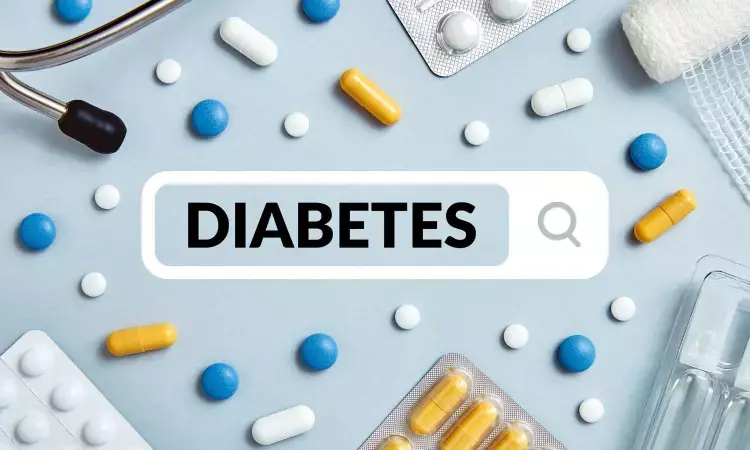- Home
- Medical news & Guidelines
- Anesthesiology
- Cardiology and CTVS
- Critical Care
- Dentistry
- Dermatology
- Diabetes and Endocrinology
- ENT
- Gastroenterology
- Medicine
- Nephrology
- Neurology
- Obstretics-Gynaecology
- Oncology
- Ophthalmology
- Orthopaedics
- Pediatrics-Neonatology
- Psychiatry
- Pulmonology
- Radiology
- Surgery
- Urology
- Laboratory Medicine
- Diet
- Nursing
- Paramedical
- Physiotherapy
- Health news
- Fact Check
- Bone Health Fact Check
- Brain Health Fact Check
- Cancer Related Fact Check
- Child Care Fact Check
- Dental and oral health fact check
- Diabetes and metabolic health fact check
- Diet and Nutrition Fact Check
- Eye and ENT Care Fact Check
- Fitness fact check
- Gut health fact check
- Heart health fact check
- Kidney health fact check
- Medical education fact check
- Men's health fact check
- Respiratory fact check
- Skin and hair care fact check
- Vaccine and Immunization fact check
- Women's health fact check
- AYUSH
- State News
- Andaman and Nicobar Islands
- Andhra Pradesh
- Arunachal Pradesh
- Assam
- Bihar
- Chandigarh
- Chattisgarh
- Dadra and Nagar Haveli
- Daman and Diu
- Delhi
- Goa
- Gujarat
- Haryana
- Himachal Pradesh
- Jammu & Kashmir
- Jharkhand
- Karnataka
- Kerala
- Ladakh
- Lakshadweep
- Madhya Pradesh
- Maharashtra
- Manipur
- Meghalaya
- Mizoram
- Nagaland
- Odisha
- Puducherry
- Punjab
- Rajasthan
- Sikkim
- Tamil Nadu
- Telangana
- Tripura
- Uttar Pradesh
- Uttrakhand
- West Bengal
- Medical Education
- Industry
Thiazolidinediones use reduces risk of rheumatoid arthritis in type 2 diabetes patients

China: A study published in Arthritis Care & Research by a team led by Houyu Zhao, PhD from the School of Public Health, Peking University, concluded that T2DM patients who use thiazolidinediones have a lower risk of developing rheumatoid arthritis.
Thiazolidinediones (TZDs) have demonstrated a potential protective effect against rheumatoid arthritis (RA) in preclinical studies. However, there needs to be more evidence from population-based studies.
This retrospective cohort study aimed to evaluate the relationship between TZD usage and RA incidence in patients with type 2 diabetes mellitus (T2DM).
Researchers assembled a retrospective cohort of T2DM patients who were recent users of TZDs or alpha-glucosidase inhibitors (AGIs). Using an IPTW Cox model, they estimated the HR of RA incidence associated with TZD use compared to AGIs.
The study included 56,796 new users of AGIs and 14,892 new users of TZDs. The incidence of RA was 187.4 and 135.2 per 100,000 person-years in AGI and TZD users, respectively. TZD use was associated with a lower RA incidence than AGI use, with an HR of 0.72. HRs for cumulative TZD use of 0.51-4.0 years and > four years were 0.55 and 0.74, respectively. Subgroup and sensitivity analyses supported the primary analysis.
The co-author, Xiaowei Chen BS from the Department of Epidemiology and Biostatistics, said that in our study, we found the use of thiazolidinediones to be linked to reduced incidence of Rheumatoid arthritis in type 2 diabetes patients.
Reference:
Zhao, H., Chen, X., Sun, Y., Shen, P., Lin, H., Sun, F., & Zhan, S. (2023). Associations between thiazolidinediones use and incidence of rheumatoid arthritis: A retrospective population‐based cohort study. Arthritis Care & Research. https://doi.org/10.1002/acr.25277
BDS, MDS in Periodontics and Implantology
Dr. Aditi Yadav is a BDS, MDS in Periodontics and Implantology. She has a clinical experience of 5 years as a laser dental surgeon. She also has a Diploma in clinical research and pharmacovigilance and is a Certified data scientist. She is currently working as a content developer in e-health services. Dr. Yadav has a keen interest in Medical Journalism and is actively involved in Medical Research writing.
Dr Kamal Kant Kohli-MBBS, DTCD- a chest specialist with more than 30 years of practice and a flair for writing clinical articles, Dr Kamal Kant Kohli joined Medical Dialogues as a Chief Editor of Medical News. Besides writing articles, as an editor, he proofreads and verifies all the medical content published on Medical Dialogues including those coming from journals, studies,medical conferences,guidelines etc. Email: drkohli@medicaldialogues.in. Contact no. 011-43720751


